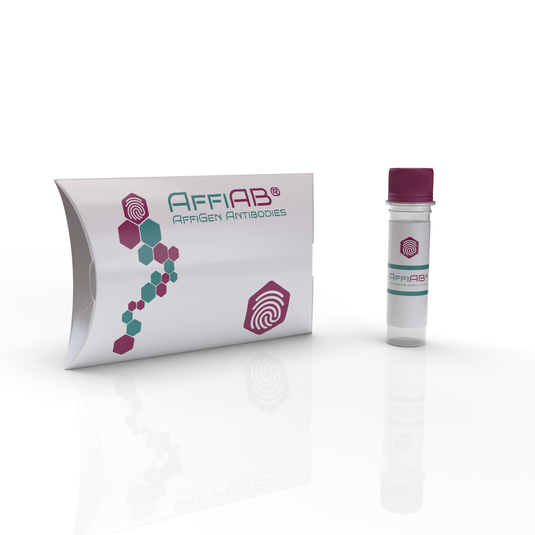AffiAB® Goat anti-pHuji Polyclonal IgG Antibody is a highly specific conjugate, optimized to detect the presence of Huji protein. Our antibody binds with greater than 95% accuracy, and is ideal for western blotting and ELISA applications.
The AffiAB® Goat anti-pHuji Polyclonal IgG Antibody is an antibody specifically designed to target and detect the pHuji protein. pHuji is a genetically encoded fluorescent protein derived from the Discosoma sp. red fluorescent protein (DsRed). It exhibits bright red fluorescence at neutral pH and undergoes a spectral shift to orange fluorescence at acidic pH.
This polyclonal antibody is produced by immunizing goats with purified pHuji protein or a specific peptide sequence derived from pHuji. Following immunization, the antibody is purified from goat serum to ensure high specificity and quality.
The AffiAB® Goat anti-pHuji Polyclonal IgG Antibody is widely used in research applications to study pH dynamics and intracellular pH changes in living cells. pHuji serves as a pH-sensitive probe that allows researchers to monitor and visualize pH fluctuations within different cellular compartments and organelles.
By utilizing the affinity of the antibody for pHuji, researchers can detect and track pHuji-expressing cells, and monitor pH changes in real time. This antibody is commonly used in techniques such as immunocytochemistry, immunofluorescence, and flow cytometry to investigate pH-dependent processes and cellular responses.
It is important to note that the AffiAB® Goat anti-pHuji Polyclonal IgG Antibody specifically targets pHuji and may not cross-react with other fluorescent proteins or pH-sensitive probes. Researchers should validate the antibody's performance and specificity in their specific experimental conditions and include appropriate controls.
In summary, the AffiAB® Goat anti-pHuji Polyclonal IgG Antibody is a valuable tool for studying pH dynamics and intracellular pH changes in living cells. By targeting the pHuji protein, researchers can visualize and quantify pH fluctuations, contributing to a better understanding of cellular processes and the regulation of pH-dependent events.

